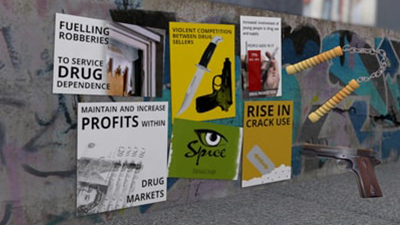Safeguarding e-Bulletin – 16th May 2019
Welcome to this week's Safeguarding e-Bulletin which will keep you up to date with the very latest safeguarding news.
U-turn for DFE
In a dramatic U-turn, a DfE source has said the department is to issue further guidance on how Head Teachers should handle requests to withdraw pupils from sex education. The issue, as highlighted in our blog "Contentions of the new PSHE framework", has meant HM Government ministers have come under increasing pressure to clarify the "exceptional circumstances" in which Head Teachers can refuse to allow pupils to be withdrawn from the lessons. Under the new system, due to be introduced in September next year, parents will have the right to request withdrawal until three terms before their child's 16th birthday, and Head Teachers will be expected to accept their wishes unless they have a good reason.
We will keep you posted when the guidance is released.
New Ofsted guidance - inspecting safeguarding in early years, education and skills settings
On Tuesday Ofsted published new guidance for inspectors to use when inspecting safeguarding in early years, education and skills settings. The separate version of this guidance will come into force from 1st September 2019 alongside the new inspection framework.
The new handbook sets out what inspectors must consider when inspecting safeguarding. It outlines the evidence that inspectors will look for during inspections and sets out the judgements they will make.
In the interim period, inspectors will use the existing guidance.
Off-rolling: new research for Ofsted
New research carried out by YouGov for Ofsted on teachers' awareness of, and views about off-rolling, was published last week. Off-rolling is the practice of removing a pupil from a school roll without a formal, permanent exclusion or by encouraging a parent to remove their child from the school roll, when the removal is primarily in the interests of the school rather than in the best interests of the pupil.
The survey, which examined the views of over 1,000 teaching professionals from primary and secondary schools across England, found a quarter of teachers participating in the study had seen off-rolling happen in their schools and two-thirds believe the practice is on the rise.
It also found that:
- there is mixed understanding among teachers of what off-rolling is, but many teachers are aware that it is happening and believe that it is on the increase
- teachers agree that it usually happens before GCSEs, either during years 10 to 11 before results are collected, or in year 9 before exam teaching begins
- vulnerable students with special educational needs (SEN) or other needs are more likely to be affected
- many teachers think there is an overlap between off-rolling and other, sometimes legitimate, practices
In response to the survey findings, Amanda Spielman (Ofsted Chief Inspector), said "These are troubling findings. While not every school is off-rolling, teachers tell us that some are clearly pushing vulnerable pupils out through the back door with little thought to their next steps and best interests. Ofsted takes a dim view of off-rolling."
Final part of £100 million fund allocated to 18 police forces
Home Secretary Sajid Javid announced last week that the final part of the £100 million fund to tackle serious violence will be distributed to 18 police forces who are dealing with high levels of violent crime. The final £12.4 million is intended to enable these forces to take urgent action which includes having more officers on duty in the worst affected areas.
In a statement announcing details of the funding allocation, the Home Secretary said "I've been doing everything in my power to ensure we have the strongest possible response to tackle violent crime - and law enforcement plays a key role in this. It takes a collective effort to tackle violent crime and I'll continue to work closely with police and partners to end this senseless bloodshed."
The police forces receiving the funding are:
| Police force | Serious Violence Fund allocation |
|---|---|
| Metropolitan Police | £20,840,000 |
| West Midlands | £7,620,000 |
| Greater Manchester | £4,800,000 |
| Merseyside | £4,200,000 |
| West Yorkshire | £4,020,000 |
| South Yorkshire | £2,580,000 |
| Northumbria | £2,320,000 |
| Thames Valley | £1,940,000 |
| Lancashire | £1,820,000 |
| Essex | £1,760,000 |
| Avon and Somerset | £1,720,000 |
| Kent | £1,660,000 |
| Nottinghamshire | £1,540,000 |
| Leicestershire | £1,400,000 |
| Bedfordshire | £1,380,000 |
| Sussex | £1,340,000 |
| Hampshire | £1,260,000 |
| South Wales | £1,200,000 |
Access the Home Office latest serious violence factsheet.
New Domestic Abuse Policy
On Monday, Prime Minister Theresa May announced policy placing a legal duty on Local Authorities to provide refuges for victims fleeing domestic abuse. The duty to provide secure homes for victims and their children is being placed on all councils in a bid to end the postcode lottery victims currently face. According to the Domestic Abuse Report 2019: The Annual Audit, at present, 60% of Local Authority referrals are declined and two thirds of women escaping domestic abuse can only seek refuge outside their local area, distancing them away from possible family support networks.
The new legal duty focuses on the delivery of support, including secure housing, to survivors of domestic abuse and their children. A consultation has been launched to determine how much funding will be needed to support implementation and where it should be targeted. This will include talking to victims and survivors, as well as support organisations.
Announcing this new measure, the Prime Minister said "I've always vowed to leave no stone unturned in tackling domestic abuse – this abhorrent crime has no place in our country. Whoever you are, wherever you live and whatever the abuse you face, you will have access to the services you need to be safe."
The most recent draft of the Domestic Abuse Bill will introduce the first statutory government definition of domestic abuse to specifically include economic abuse and controlling and manipulative non-physical abuse. The legislation will also establish a domestic abuse commissioner and prohibit the cross-examination of victims by their abusers in family courts.
The UK domestic violence helpline contact telephone number is 0808 2000 247.
CSE serious case review – Bradford
The new Chair of Bradford's Safeguarding Children Board, Jane Booth, has announced a serious case review will be held into historical child sex abuse (CSE) in Bradford. The inquiry, which will commission an independent person to conduct the review, will examine how agencies in Bradford had responded to CSE in the past.
Following a case we reported on earlier this year (where nine men were jailed for raping and abusing two teenage girls living in a children's home in Bradford), the new Chair has convened the review to look at how Bradford agencies have responded to CSE in the past. Booth stated: "We will hold agencies to account for the quality of the service they delivered and challenge them where their actions or inaction did not protect children."
Adrian Farley, Executive Member for Children's Services at Bradford Council, said the authority welcomed the review as an "important part of learning lessons of the past. We would be really keen to receive the findings and ensure lessons have been learned."
No prohibition order for "spontaneous kiss"
Despite a teacher admitting that her actions were of a sexual nature, a Teaching Regulation Agency panel has decided that the allegation was not proven, allowing her to continue in the profession.
Rachel Clint, formerly Assistant Head Teacher at the private Merchant Taylor's boys' school in Liverpool, was filmed sitting on a sixth-form student's knee and kissing him during a train journey. The incident happened in May 2017 following a leavers' drinks event for Year 13 students, where alcohol had been consumed. A photograph of the incident was sent to the school, resulting in Ms Clint's suspension and dismissal almost a year later.
The Teaching Regulation Agency panel decided that her actions were not sexually motivated, stating that the evidence heard suggested "this was a spontaneous kiss which did not lead to any further intimacy." The panel added that there was no pre-planning involved with the kiss or flirtatious or premeditated behaviour that would have provoked such an incident. Whilst recognising this behaviour could "damage the public's perception of her and therefore bring the profession into disrepute" the panel decided the evidence given did not support imposing a prohibition order.
The Department for Education's decision-maker, Dawn Dandy, accepted the TRA panel's report and recommendation that this was an isolated incident and that it was "not necessary to impose a prohibition order in order to maintain public confidence in the profession".
Updated JTAI guidance
Joint Targeted Area Inspections (JTAIs) guidance on the multi-agency response to child sexual abuse in the family environment has been published. JTAIs include a 'deep dive' investigation – an evaluation of children and young people's experiences. The subjects change periodically to investigate different themes in detail, in this case, the response to children at risk of, or subject to, sexual abuse in the family environment.
Inspection reports for the following areas are published on the Ofsted reports website:
- Derby City Council
- City of York Council
- Cornwall Council
- Shropshire
- London Borough of Islington
- Bracknell Forest Borough Council
New Church law on reporting sexual abuse
In an Apostolic letter set to become Church law, Pope Francis has made it mandatory for Roman Catholic clergy to report cases of clerical sexual abuse and cover-ups to the Church.
In the letter he clarifies that any sexual advance involving the use of power will now be considered abusive, sending a message to the Church hierarchy that no-one will be exempt from scrutiny.
The Pope, who promised in February to take concrete action to tackle abuse, states in the letter - "The crimes of sexual abuse offend Our Lord, cause physical, psychological and spiritual damage to the victims and harm the community of the faithful."
The Pope's decree introduces an obligation for clerics and Church officials to disclose, within 90 days to offices within Church dioceses, any allegations they may have heard. Previously, this had been left to each individual's discretion. The decree also defines the covering-up of abuse as a specific category.
The offences are defined as:
- Forcing someone, by violence or threat or through abuse of authority, to perform or submit to sexual acts;
- Performing sexual acts with a minor or a vulnerable person;
- Production, exhibition, possession or distribution of child pornography and the recruitment of or inducement of a minor or a vulnerable person to participate in pornographic exhibitions;
The guidelines further cover "actions or omissions intended to interfere with or avoid civil investigations or canonical [Church] investigations, whether administrative or penal, against a cleric or a religious" for sexual abuse.
The decree does not change the penalties for crimes committed.
Please do let us know what you think of the e-Bulletin:
e-bulletin@ssslearning.co.uk
Please feel free to share our e-Bulletin. We are passionate about the role we play in safeguarding children and the more people that know about it the better. Sign up to our Thursday safeguarding e-Bulletin.
Find out about our Safeguarding Suite.
SSS Learning Safeguarding Director


